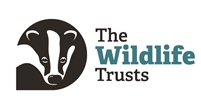Wonderful ways to work with wildlife
This post is greater than 6 months old - links may be broken or out of date. Proceed with caution!

By Harry Shepherd, Media Manager, The Wildlife Trusts
%20Mike%20Alexander%20-%20Article.jpg)
Working in wildlife conservation means trudging around the countryside 365 days a year come rain or shine, right? Well, not exactly. There is a wealth of different career positions that contribute to protecting and restoring our natural world. Once you scratch beneath the surface, you might be surprised about the range of options that are out there.
Organisations working on environmental issues need wildlife rangers, ecologists, ornithologists, and entomologists, but they also need campaigners, education officers, data scientists, and project managers. The teams of people working behind the scenes in areas like finance, administration and fundraising are critical to enabling others to carry out work on the ground. In short, every single role is just as valuable as the next and nature charities couldn’t achieve what they do without the contribution of all our staff and volunteers.
%20Helena%20Dolby%20-%20Article.jpg)
Where to start
So how do you know what role is right for you? Really, only a small percentage of people know exactly what they want to do. A good starting point is working out what you enjoy and what you’re good at and taking it from there. It is also useful to do some research about potential career options and trying to envisage yourself in a scenario linked to a particular role.
Could you see yourself working on the moors to carry out vital peatland restoration work in the middle of winter? Would you find it daunting to deliver a talk to a group of schoolchildren about the importance of insects? Does the thought on influencing politicians and journalists on crucial environmental policies fill you with excitement or dread? Understanding what different roles involve and imagining yourself taking on those tasks can help you to focus in on one or two areas – and to put to one side those that might not be for you at that time.
%20Broni%20Lloyd-Edwards%20-%20Article.jpg)
If you’re at the beginning of your career, it is useful to try and get some experience at one or two different organisations and, ideally, in one or two different roles. The Wildlife Trusts and many other nature charities provide opportunities for young people to gain skills and opportunities to get their foot in the door. For example, London Wildlife Trust’s Keeping It Wild programme has successfully inspired over 1000 young people aged 11-25 to become actively involved in the protection and promotion of London’s natural heritage. Many have gone on to land jobs in conservation in the capital and beyond.
The breadth of experience offered through Keeping it Wild is summed up by former trainee Naomi, who says: “Everyday was a new adventure, a new challenge. I learned to mend fences, teach children about minibeasts, create paths, survey ancient trees, design social media content, build benches, make new habitats, identify butterflies, maintain ponds, sharpen tools and so much more. Trying new things everyday, with the encouragement of London Wildlife Trust's amazing staff, making me realise I was capable of doing many things. Week by week, my confidence grew.”
Elsewhere, Berks, Bucks & Oxon Wildlife Trust and Nottinghamshire Wildlife Trust run training programmes that help young people gain practical experience to help them take that next step in their career.
Many other Wildlife Trusts – and plenty more environmental organisations – provide similar opportunities. You can find lots of information online or get in touch with your local Wildlife Trust and take it from there.
%20John%20Morrison%20-%20Article.jpg)
Not everything is set in stone
You don’t have to stay in the same line of work forever. Just because you land a job in a particular area of conservation doesn’t mean you can’t change in the future. In fact, many jobs complement each other, and we often see people across The Wildlife Trusts’ family changing roles down the line. While some positions do require specialist training, getting experience and sharing your passion for nature can help you to move into a different role if you’re looking for a change.
We need new voices in nature conservation
The nature and climate crises present the biggest challenges ever faced by mankind. We must restore and repair our natural world – as well as ending our reliance on fossil fuels – to safeguard our future on earth. To achieve that, we need a diverse and determined workforce tackling the big issues of our time.
It’s so important that everyone feels welcome regardless of background or identity to help address these monument challenges. We know that greater diversity means we are likely to find solutions much more quickly.
From undertaking crucial research about the health of rivers to managing landscape scale rewilding projects to inspiring communities to take action where they live, there are so many different jobs and projects to get involved in. In a nutshell, the opportunities to work in nature conservation and restoration are as diverse as the organisations that offer them. Where will your journey take you?
Find out more about working for the Wildlife Trusts at www.wildlifetrusts.org
First published in CJS Focus on Working with Wildlife in association with The Wildlife Trusts on 17 October 2022. Read the full issue here
More from The Wildlife Trusts